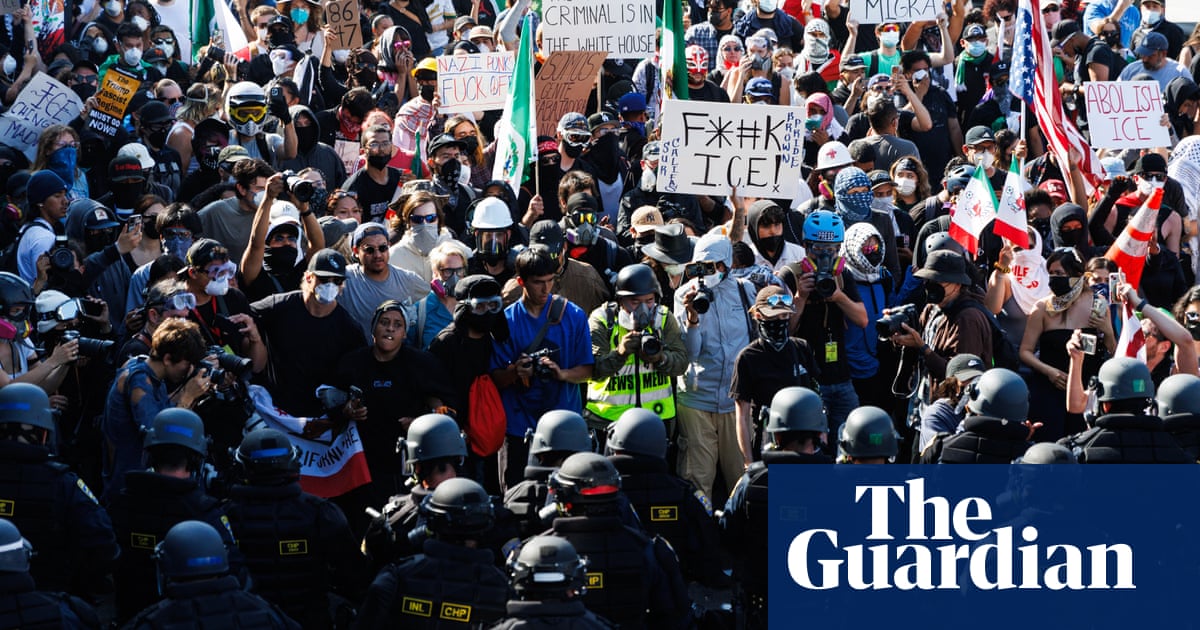Executives from the US host city committees for next year’sWorld Cupsaid on Monday that Immigration and Customs Enforcement (Ice) raids have created “uncertainty” as they prepare to host an influx of foreign visitors.
The 2026 World Cup, which will be co-hosted with Canada and Mexico, will take place in 11 cities across the US, and is predcited to draw more than five million visitors over the course of the 40-day tournament. However, visa processing times have been slow for several countries,travel bans have been instituted(including forrecently qualified Iran), and raids ostensibly aimed at deporting undocumented immigrants have seen the government arrest and deport visa holders, permanent residentsand even citizens.
At a gathering in New York City, Philadelphia host committee CEO Meg Kane spoke for the group when asked by the Guardian what impact the Ice raids have had on the organizations’ ability to welcome fans with open arms – a message disseminated by the host cities themselves and Fifa president Gianni Infantino.
“There are certainly things that are happening at the national level, the international level. There are going to be geopolitical issues that we don’t even know right now that are going to affect the tournament next year,” Kane said in part. “We recognize that we’re planning within uncertainty. And one of the things that I think we all recognize is that we have to be really good at operating within that uncertainty. While there are certain situations that we are watching … the [Trump] administration has been extremely supportive of Fifa World Cup. It has recognized both in the second term under President Trump, but also in the first term under President Trump, when the letters of intent were signed, how important the Fifa World Cup is to elevating the nation.”
The host city committees are concerned, in part, with communicating potential issues to fans in areas such as transportation, lodging, and safety.
All host city heads said they hoped to provide a welcoming environment for all who visit for the World Cup, but demurred when asked how they deal with the contrast of that message alongside heavy-handed immigration crackdowns and travel bans.
“I mean, we’re all watching it and monitoring it real time,” said Jason Krutzsch, vice president of the Los Angeles host city committee when asked aboutthe situation in his home city, which is currently experiencing a raft of violence surrounding Ice raids and the deployment of the national guard. “I think our goal is still to deliver the conceptional experience and work with our local administration and public safety officials and making sure that we can deliver a safe and secure event in a year.”
Krutzsch, Kane, and other host city chairs said that they are confident that Fifa and the federal government are discussing the topic, but ultimately the decision on who to allow into the US for the World Cup lies with those two bodies.
“I think the right people at the federal level, at the Fifa level, are having those conversations,” said Mike Loynd, president of the Boston host city committee. “And I think the intent, even there, is to welcome the world. It’s really not our place in the organization to comment on anything other than that.”
Added Kane: “We allow for Fifa to continue having constructive conversations with the administrations around visas, around workforce, around tourism, and that will be prepared for whatever comes our way to make this a great tournament, because that’s what the charge of the host cities are.”
